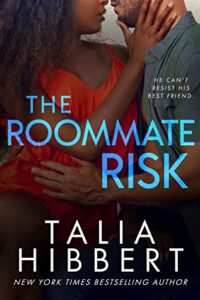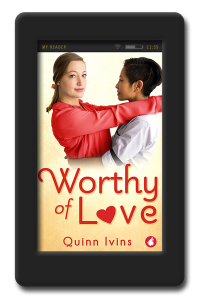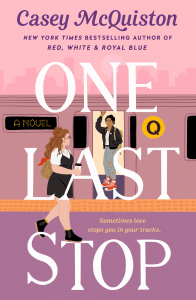Amazon Affiliate Link | Bookshop.org Affiliate Link
Recently, a friend of mine asked me for friends-to-lovers romance recommendations. Now, if you know anything about me as a romance reader (besides the fact that I’m gay and disabled and read gay and disabled romance), it’s that I HATE the trope friends-to-lovers.
I love friendship. I think friendship is the greatest gift and greatest tool we have, and I often think that our society actively denigrates friendship in favor of a hierarchy that places romantic and sexual love at the pinnacle of human connection (I saw as a nearly exclusively romance reader). And every time I read a friends-to-lovers romance, I think “but why can’t they just be friends? They gave each other everything they needed as friends,” and “Wait, but what was keeping them apart in the first place?” I know that this is how many many real life relationships start — as friends — but in a romance novel with a plot, I always find it frustrating and unsatisfying. Except for when Talia Hibbert writes it. (Yes, okay, and like a few other times, but mostly when Talia Hibbert writes it.)
If you loved Take a Hint, Dani Brown, I beg you, I implore you, I beseech you, PLEASE read The Roommate Risk. It is friends-to-lovers with a bisexual Black heroine, a South Asian hero, anxiety rep, pining for DAYS, and more super hot, steamy sex than should reasonably fit in 75,000 words.
The story is told in flashbacks interspersed between scenes of “now,” when a flood in her flat requires Jasmine to move in with her best friend Rahul. Rahul has been in love with Jasmine since they met and slept together once in college and, when Jasmine asserted that she does not sleep with her friends, elected for friendship over hooking up. However, the fates of adulthood and forced proximity now require them to confront their desire, and ultimately their love, for one another.
I think one of the reasons this book works so well for me is that their friendship is so clearly the center of their sexual and then romantic relationship. No matter how loudly Jasmine asserts that she does not do relationships and does not sleep with her friends, the fact that they have nearly a decade of friendship between them is what allows them to trust one another fully with their bodies and their hearts.
This book is so brazen and full of heart. It is sex positive and body positive. Jasmine is casually and essentially bisexual. Her queerness is fully integrated into her identity and is not at all a factor in their conflict. It is unapologetic and unexplained. And reading a queer Black heroine in an M/F written by a queer Black author feels like a gift.
I love seeing an author work through the same questions over multiple projects and diving back into Talia Hibbert’s backlist and seeing her tackle these similar themes and tropes is such a delight. This is a friends-to-lovers romance that puts the friendship first and tells a true, authentic, complex story about queerness and anxiety and interracial love.
Content warnings: parental neglect, panic attacks, anxiety, death of a parent, accidental cuts (blood), alcohol misuse




